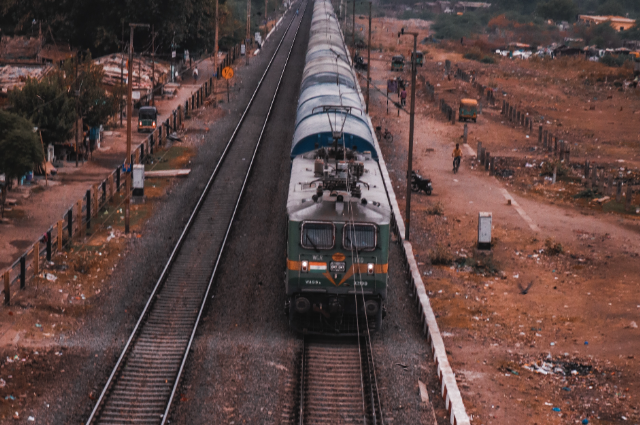
Photo by Vardhan Halwai on Unsplash / Image for representation
The Godhra incident refers to a tragic event that occurred on February 27, 2002, in the town of Godhra, located in the Indian state of Gujarat. This incident has had far-reaching consequences and has remained a subject of controversy and debate for many years. The incident was marked by a train fire that resulted in the deaths of 59 people, most of whom were Hindu pilgrims returning from Ayodhya. What followed were horrific communal riots in Gujarat that left over a thousand people dead, the majority of whom were Muslims, and thousands displaced.
The Godhra Train Fire:
The Godhra incident began when the Sabarmati Express train, carrying Hindu passengers, was returning from Ayodhya after the contentious Babri Masjid demolition and subsequent events. The train had halted at the Godhra railway station, and during this halt, a mob attacked a coach carrying Hindu passengers. In the attack, a fire broke out in the coach, leading to the tragic deaths of 59 people, including women and children. The cause of the fire remains a subject of debate, with claims of accidental fire and intentional arson.
Immediate Aftermath:
Following the Godhra incident, Gujarat, especially its major cities like Ahmedabad and Vadodara, witnessed one of the deadliest communal riots in India's recent history. Mobs targeted Muslims, their homes, and businesses. Reports of brutal violence, sexual assaults, and widespread destruction shocked the nation and the international community.
Controversies and Investigations:
The Godhra incident raised several important questions and controversies. While the initial claim by some was that the fire was accidental, others alleged that it was a premeditated act of violence. Investigations into the incident were marred by political interference and allegations of a cover-up.
Role of Political Leadership:
The role of political leadership during and after the Godhra incident is a subject of much debate. At that time, Narendra Modi, who is now India's Prime Minister, was the Chief Minister of Gujarat. Critics accused him of not doing enough to control the riots, while his supporters argued that he took measures to restore law and order.
Long-Term Impact:
The Godhra incident and the subsequent riots have had profound and lasting effects. They deepened religious fault lines, polarized communities, and had a significant impact on the lives of those who were affected. The incident also led to a focus on issues related to religious freedom, human rights, and the role of the state in managing communal violence.
Conclusion:
The Godhra incident is a tragic chapter in India's history, serving as a stark reminder of the devastating consequences of communal violence. It has sparked numerous debates, discussions, and legal proceedings over the years. While some justice has been delivered in various cases related to the riots, the wounds from the Godhra incident and its aftermath continue to be felt, highlighting the need for reconciliation, communal harmony, and accountability in the pursuit of a more peaceful and united society.
